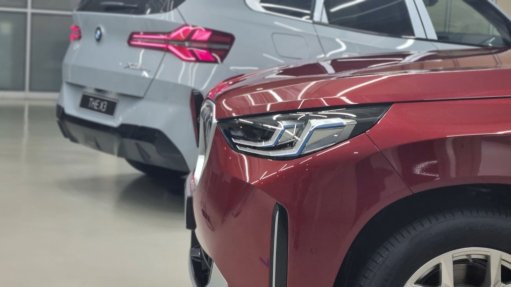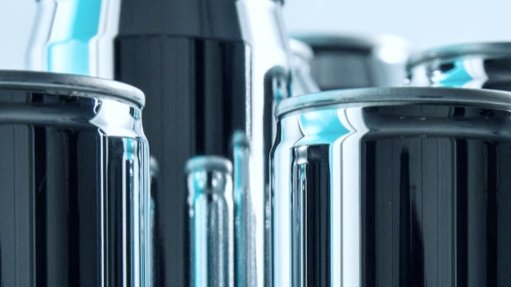Democracy’s trust deficit
They say democracy is government of the people, by the people and for the people. Increasingly, however, it seems the people – particularly in Africa – are losing faith in the idea. Nowhere is this disillusionment more evident than at the ballot box. Across the continent – and indeed globally – voter turnout is declining. In this country, participation has plummeted from 89.3% in 1999 to a low of 58.6% in last year’s election, which ushered in the country’s current Government of National Unity.
Pinpointing the reasons for the declining civic involvement is no easy task, but a recent Afrobarometer survey seems to provide more than just a hint at one of the causes of electoral disengagement. Conducted across 39 countries, the study revealed an unrelenting decrease in trust in public institutions since 2012.
The increasingly distrusted public institutions include national Parliaments, municipal councils, the Presidency, electoral commissions, the police, the courts and political parties.
To illustrate the extent of the decline, trust in the continent’s national Parliaments is on average 19% lower than in 2011, while ruling parties, Presidents and the courts are now 16%, 12% and 10% less trusted respectively.
Regional disparities are discernible, however, with East and West Africa faring considerably better than North, Central and Southern Africa – our region, where elections have long been fraught. In Zimbabwe, for instance, the Southern African Development Community’s (SADC’s) own observer mission highlighted deep flaws in the conduct of the country’s 2023 elections, which returned President Emmerson Mnangagwa and his Zanu-PF party to power.
Southern Africa’s laundry list of bad electoral practice also includes Eswatini, the continent’s last absolute monarchy, and Mozambique, where scores of people lost their lives in post-electoral violence amid allegations of massive rigging in October last year. Neighbours Zambia and Malawi, too, have had to contend with their own electoral shenanigans while the SADC stood aloof.
Now the electoral commission in Tanzania has barred the main opposition party, Chadema, and its Presidential candidate from elections due in October, ostensibly because of their failure to sign a mandatory code of conduct by the set deadline. Chadema, whose leader has been charged with treason and could face the death penalty, had vowed not to participate in electoral processes unless meaningful reforms were introduced.
Clearly, the goings-on in Tanzania are a blot on East Africa’s copybook and will most likely reflect in Afrobarometer’s next trust survey.
While the courts and public institutions that are political in nature – Parliaments, the Presidency, electoral bodies, local councils, et cetera – now face a huge public trust deficit, their non-political counterparts have seen their public trust levels trend upwards. According to the Afrobarometer study, religious leaders currently enjoy a 66% trust level, the army 61% and traditional leaders 50%.
That the army enjoys greater trust than politicians, the judiciary and electoral bodies doesn’t bode well for our democracies.
This is indicative of increasing tolerance for miliary rule – fertile ground for coups. As I noted recently in this column, military takeovers neither improve the economic wellbeing of citizens nor enhance national security, and certainly don’t reverse the narrowing of the democratic space – the main justifications often cited by coup architects.
If there is any doubt that an increasing number of Africans are warming to military rulers, we only need to look back to January 7, when John Mahama was inaugurated for his second stint as the President of Ghana. Ibrahim Traore, the now 36-year-old army captain who seized power in Burkina Faso in September 2022, received the loudest ovation of all the 21 African heads of State in attendance.
Clearly, his popularity now extends beyond his home country – where 66% Burkinabé respondents told Afrobarometer researchers they believed the army should intervene when leaders abuse power – to the broader African stage.
What seems to endear him to his admirers across the continent are his radical policies: reversing his predecessor’s salary increase for civil servants while remaining on his army captain’s salary; nationalising two gold mines; inaugurating a refinery to process all the country’s gold output; building a new airport; establishing a centre for artisanal cotton processing; and investing heavily in agriculture.
Is all this sustainable? Time will tell.
Article Enquiry
Email Article
Save Article
Feedback
To advertise email advertising@creamermedia.co.za or click here
Press Office
Announcements
What's On
Subscribe to improve your user experience...
Option 1 (equivalent of R125 a month):
Receive a weekly copy of Creamer Media's Engineering News & Mining Weekly magazine
(print copy for those in South Africa and e-magazine for those outside of South Africa)
Receive daily email newsletters
Access to full search results
Access archive of magazine back copies
Access to Projects in Progress
Access to ONE Research Report of your choice in PDF format
Option 2 (equivalent of R375 a month):
All benefits from Option 1
PLUS
Access to Creamer Media's Research Channel Africa for ALL Research Reports, in PDF format, on various industrial and mining sectors
including Electricity; Water; Energy Transition; Hydrogen; Roads, Rail and Ports; Coal; Gold; Platinum; Battery Metals; etc.
Already a subscriber?
Forgotten your password?
Receive weekly copy of Creamer Media's Engineering News & Mining Weekly magazine (print copy for those in South Africa and e-magazine for those outside of South Africa)
➕
Recieve daily email newsletters
➕
Access to full search results
➕
Access archive of magazine back copies
➕
Access to Projects in Progress
➕
Access to ONE Research Report of your choice in PDF format
RESEARCH CHANNEL AFRICA
R4500 (equivalent of R375 a month)
SUBSCRIBEAll benefits from Option 1
➕
Access to Creamer Media's Research Channel Africa for ALL Research Reports on various industrial and mining sectors, in PDF format, including on:
Electricity
➕
Water
➕
Energy Transition
➕
Hydrogen
➕
Roads, Rail and Ports
➕
Coal
➕
Gold
➕
Platinum
➕
Battery Metals
➕
etc.
Receive all benefits from Option 1 or Option 2 delivered to numerous people at your company
➕
Multiple User names and Passwords for simultaneous log-ins
➕
Intranet integration access to all in your organisation

















